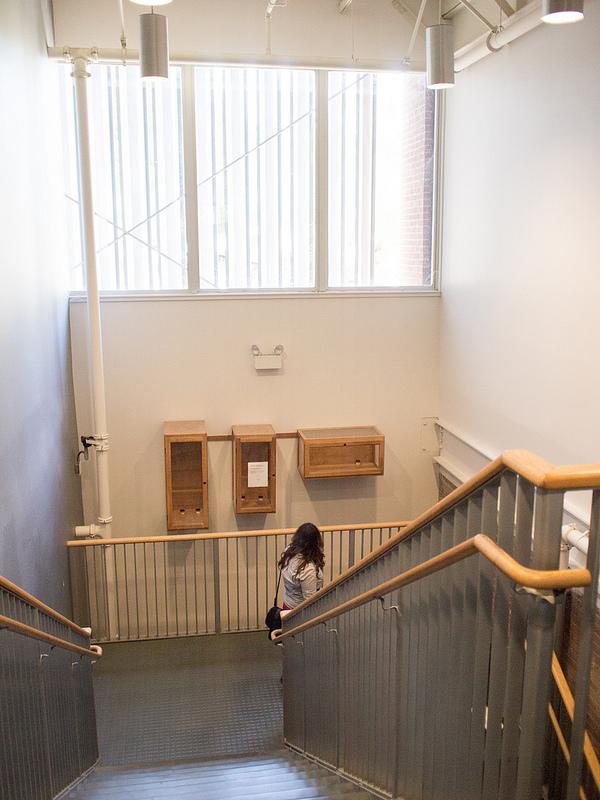Last spring a broken lock and a missing taxidermy eagle lead to an open investigation, which is still in progress today. The case continues to linger in the halls of the Health Science Building, causing many questions to emerge.
During the middle of the 2013 spring semester, the golden taxidermy eagle display went missing. Lisa Brager, the science lab coordinator, explained what happened in broad daylight.
She was patrolling the halls of the Health Science building post-class and noticed something off about the display case located next to the entrance stairwell. As she took a closer look at the array of taxidermy animals an alarm went off in her head. She immediately realized the Golden Eagle was missing.
Brager teamed up with Robert Gelinas, the department chair, on a separate investigation of the matter. After reaching out to fellow staff members, and getting no helpful responses, they decided to inform police services.
Zahra Hamidi, a pharmaceutical sciences major, posed a question many students have been wondering: “Who would want to steal an eagle?”
Hamidi went on to say, “It’s heartbreaking that students would steal things from schools that are already struggling with financing a strong education for its students.”
After an investigation of the active crime scene, police services determined the display case was forcibly opened, with a broken lock as evidence. The investigation has uncovered a few possible leads that will be probed further.
Brager went on to say that this missing Golden Eagle is endangered, and must be handled with a permit. She notes permits are predominantly awarded to research and education facilities.
The only way this eagle could be traded, sold, or bought is through the black market. According to Taxidermy UK, one of these eagles could be sold for an estimated $3,452.00.
Under Federal Wildlife Preserve Law, stealing this eagle is considered a misdemeanor with a minimum of six months in prison and $15,000 in fines. To actually sell this taxidermy golden eagle without a permit would entail $250,000 in fines and a minimum of two years in prison.
Any information about this case can be forwarded to LBrager@dvc.edu and RGelenias@dvc.edu.







































































